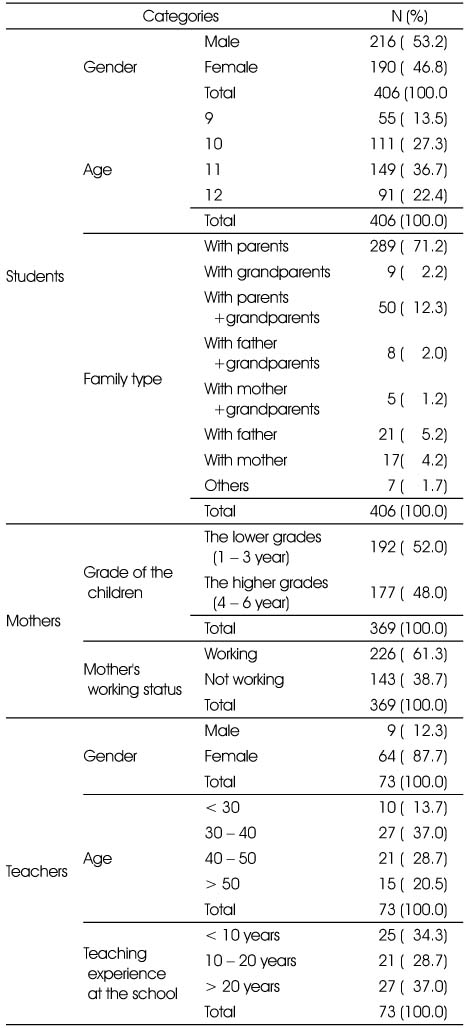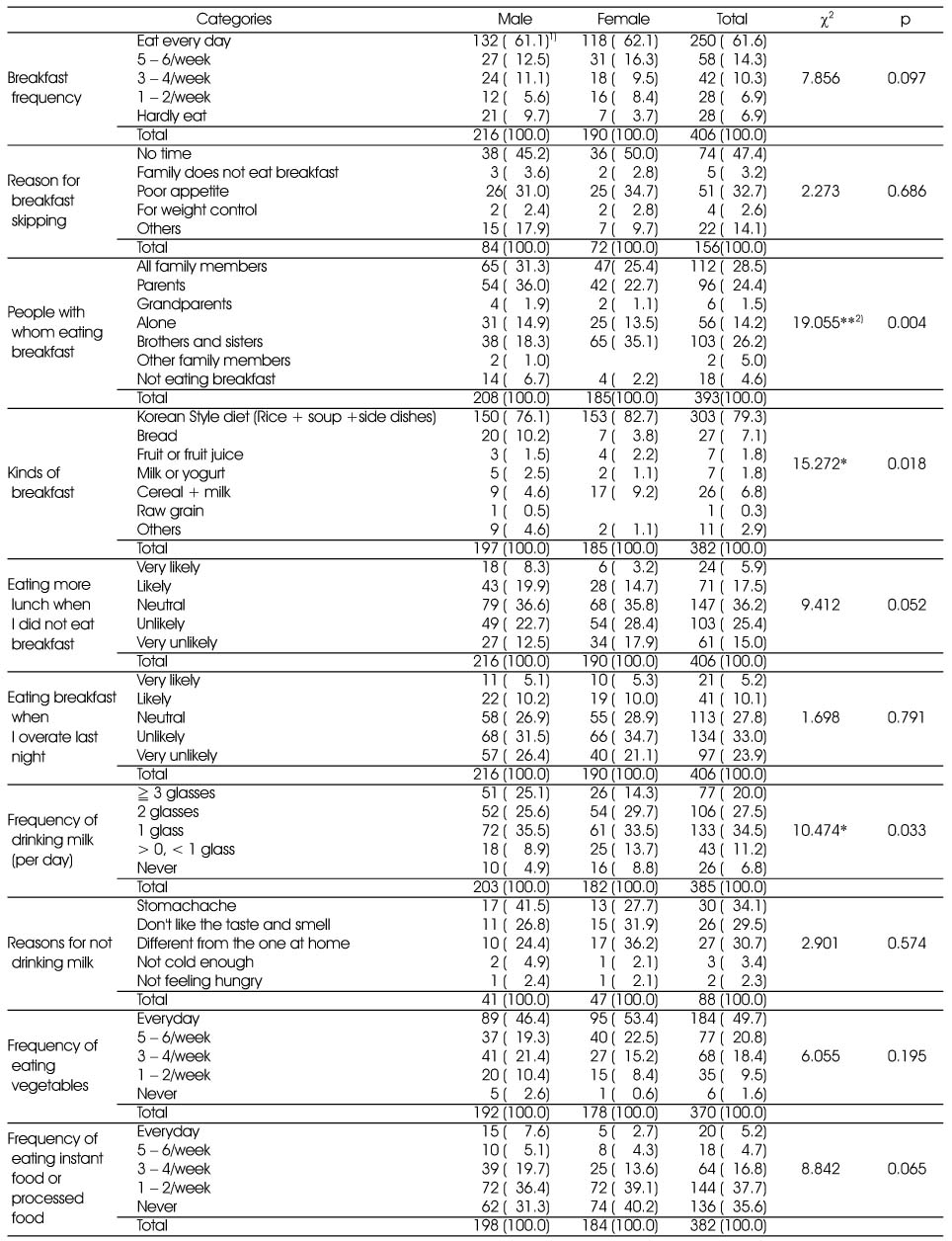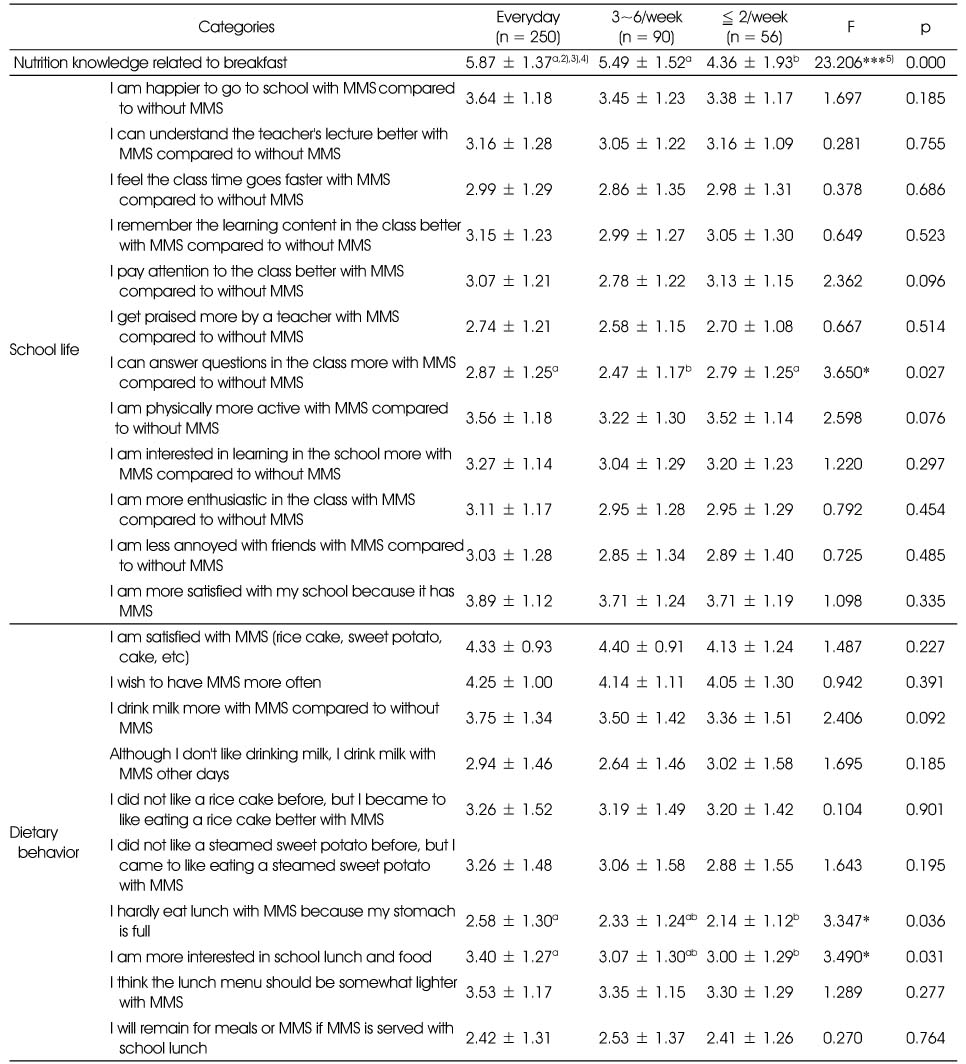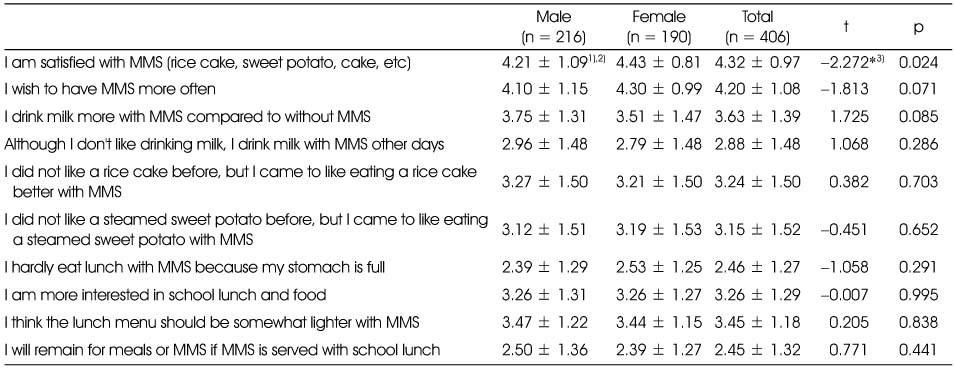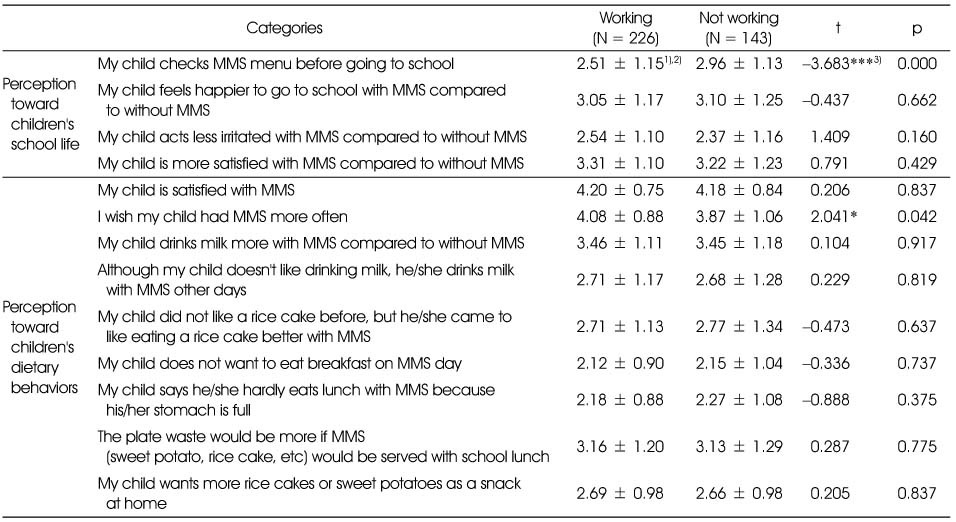References
1. An GS, Shin DS. A comparison of the food and nutrient intake of adolescents between urban areas and islands in South Kyungnam. Korean J Community Nutr 2001. 6(3)271–281.
2. Choe JS, Chun HK, Chung GJ, Nam HJ. Relations between the dietary habit and academic achievement, subjective health judgement, physical status of high school students. J Korean Soc Food Sci Nutr 2003. 32(4)627–635.
3. Kim BR, Kim YM. A study on the food habits and evaluation of nutrient intakes of high school students in Chunchoen. J Korean Home Econ Educ Assoc 2005. 17(1)35–52.
4. Kim MS. The nutrition education contents development regarding morning going without a meal of the elementary student 2008. Konkuk University; 24–28.
Dissertation.
5. Kim SH. Children's growth and school performance in relation to breakfast. J Korean Diet Assoc 1999. 5(2)215–224.
6. Kim TY, Kim HS. Comparison of calcium intake status among elementary students by participation in the school milk program. Korean J Food Cult 2009. 24(1)106–115.
7. Kim YH, Seo JS. Dietary pattern of children with an unbalanced diet in school feeding. J Korean Diet Assoc 2004. 10(3)345–355.
8. Kim YS, Yoon JH, Kim HR, Kwon SO. Factors affecting intention to participate in school breakfast programs of middle and high school students in Seoul. Korean J Community Nutr 2007. 12(4)489–500.
9. Lee KH, Hwang KJ, Her ES. A study on body image recognition, food habits, food behaviors and nutrient intake according to the obesity index of elementary children in Changwon. Korean J Community Nutr 2001. 6(4)577–591.
10. Lee PS, Lee MA, Yang IS, Cha SM. Assessing relative importance of perational factors for school breaksfast program using conjoint analysis. Korean J Food Cult 2007. 22(5)621–632.
11. Lee YS, Yim HS, Ahn HS, Chang NS. Nutrition throughout the life cycle 2006. Seoul: Kyomunsa; 259–262.
12. Ministry of Health, Welfare and Family Affairs (MHWFA). 2005 Korea National Health and Nutrition Examination Survey 2006.
13. Murphy JM, Pagano ME, Nachmani J, Sperling P, Kane S, Kelinman RE. The relationshiop of school breakfast to psychosocial and academic functioning: Cross-sectional and longitudinal observation in an inner-city school sample. Arch Pediatr Adolesc Med 1998. 152(9)899–907.
14. Oh YM, Kim MH, Sung CJ. The study of satisfaction, meal preference and improvement on school lunch program of middle school boys and girls in Jeonju. J Korean Diet Assoc 2006. 12(4)358–368.
15. Paik JJ, Lee HS. Dietary behaviors, food preferences and its relationships with personality traits in sixth grader's of elementary school. Korean J Community Nutr 2004. 9(2)135–141.
16. Sjoberg A, Hallberg L, Hoglund D, Hulthen L. Meal pattern, food choice, nutrient intake, and life factors in The Goteborg Adolescence Study. Eur J Clin Nutr 2003. 57(12)1569–1578.
17. Yang IS. Enhancing the school foodservice management through national school breakfast program. J Korean Diet Assoc 1997. 3(2)223–238.
18. Yang IS, Yi BS, Park MK, Kim HY, Kim YS. Development of standardized manual for efficient management of school milk program. J Korean Home Econ Assoc 2009. 47(5)95–105.
19. Yeoh YJ, Yoon JH, Shim JE, Chung SJ. Factors associated with skipping breakfast in Korean children: analysis of data from the 2001 National Health and Nutrition Survey. Korean J Community Nutr 2008. 13(1)62–68.
20. Yoon JH, Choo YJ, Chung SJ, Ryu SH. Satisfaction of elementary students eating school lunch; association with level of involvement in school lunch service. Korean J Community Nutr 2005. 10(5)668–676.
